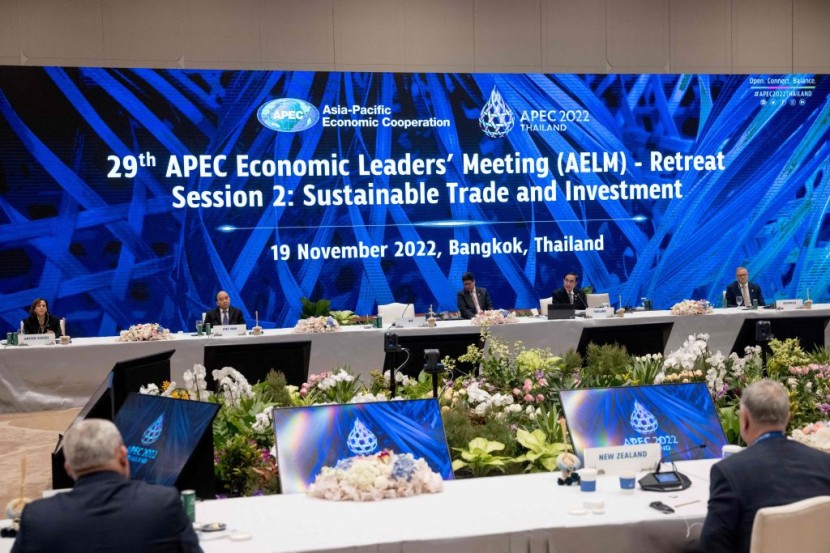
A call from Asia-Pacific heads of state at the Asia-Pacific Economic Cooperation (APEC) summit to end the eastern European conflict in Ukraine was the message to kickstart open trade affected by the conflict. As the summit concluded last Saturday, the majority of the region's leaders agreed to prioritize growth.
Asia-Pacific Leaders Seek To End Eastern European Conflict
The host country, Thailand, where the APEC meeting is held, was herded with 21 member states saying that the Ukrainian war must end, reported AP News.
Since Russia is an APEC member like China, it would not condemn Moscow. The APEC Declaration accepted all points of view regarding the war and the discussion, focusing on pushing trade and economic links. It disregarded attempts by the west to make it another venue to alienate Moscow or express concern about the Ukraine conflict.
One conclusion reached during the economic summit, mentioning war and security issues, will impact the global economy. A concern expressed by these leaders and the majority of members who believe the Ukraine war has caused suffering and inflation, disrupted supply chains, caused hunger, and caused financial strife, per Bega District News.
Similar to the statement from the Group of 20 (G20) economies held in Bali, Indonesia. The message was the same as the March 2 United Nations General Assembly resolution. It was more or less western-oriented and called on Russia to surrender all territories where the Russian army hammered and drove away the Ukrainian Armed Forces.
APEC Promotes Open Trade
The meeting in Bangkok on Saturday concluded a series of summits in Southeast Asia this week. These venues gave leaders the opportunity to express their views personally after the pandemic breakout in March 2020. When the formal meeting concluded, the APEC served as a backdrop for nations' concerns to be discussed informally on the sidelines.
US Vice President Kamala Harris spoke with Chinese President Xi Jinping last Saturday before the APEC meeting started, stressing to "keep lines open" between the two biggest economies, mentioned ABC News.
During a previous meeting this week, the Chinese leader spoke with President Joe Biden, stating that it is a step toward better relations based on a summary of their discussions, according to the Chinese government.
Significant developments concern the troubled status of US-China relations on several issues. This is Washington's trade and technology war, focusing on separatist Taiwan, human rights, and other issues aimed at China. The vice president emphasizes that the US wants fewer tense relations with Beijing.
The APEC host gave Harris a handover that was a symbolic chalom bamboo basket from Thai Prime Minister Prayuth Chan-ocha. Next year, the US will host the APEC meeting in San Francisco, with preliminary meetings in other venues.
Summit meetings are only sometimes on track, with essential issues interfering with the central theme, but APEC is for better trade and is not used to co-opt the agenda by any nation.
Last Saturday, Prayuth started telling all leaders that trade is the sole purpose of pushing free trade in the Pacific sphere. He added that it is the main goal, citing the Artesia Daily Press.
All Asia-Pacific leaders agreed that the eastern European conflict must end to promote open trade and end the instability it has caused.
Related Article: Russian Foreign Ministry Says Lavrov's Attendance in G20 Summit Marred by Alleged False Reports of Getting Hospitalized








